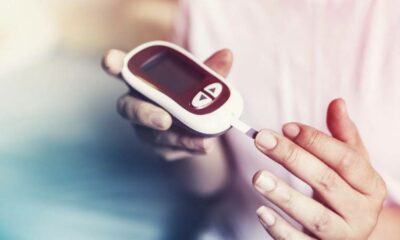

Diabetes is a growing global health issue, with millions of people at risk of developing Type 2 diabetes. While genetics play a role, lifestyle choices are...


Intermittent fasting (IF) has gained popularity as a dietary strategy for weight loss and metabolic health. Beyond weight management, intermittent fasting is also linked to better...


Stress is a common part of life, but chronic stress can have serious effects on your health, including your blood sugar levels. When you’re stressed, your...


Exercise is one of the most effective ways to regulate blood sugar, improve insulin sensitivity, and maintain overall health. Whether you are managing diabetes, pre-diabetes, or...


Blood sugar, also known as blood glucose, plays a pivotal role in maintaining your body’s energy levels and overall health. Glucose is the primary source of...


Living with diabetes involves more than just managing blood sugar levels—it also demands attention to emotional well-being. The daily routine of monitoring blood glucose, medication adherence,...


In recent years, continuous glucose monitoring (CGM) devices have revolutionized the management of Type 1 diabetes, offering a more precise and convenient approach to controlling blood...


1. What Are Low Glycemic Foods? 2. How Low Glycemic Foods Stabilize Blood Sugar Levels 3. Low Glycemic Foods Reduce the Risk of Complications 4. How...


In Type 2 diabetes, insulin resistance and elevated insulin levels can hinder weight loss efforts, making it more challenging for diabetics to lose weight. 1. Understanding...


Explain how stress affects diabetics, leading to elevated blood sugar levels due to the release of hormones like cortisol and adrenaline. These hormones trigger the liver...